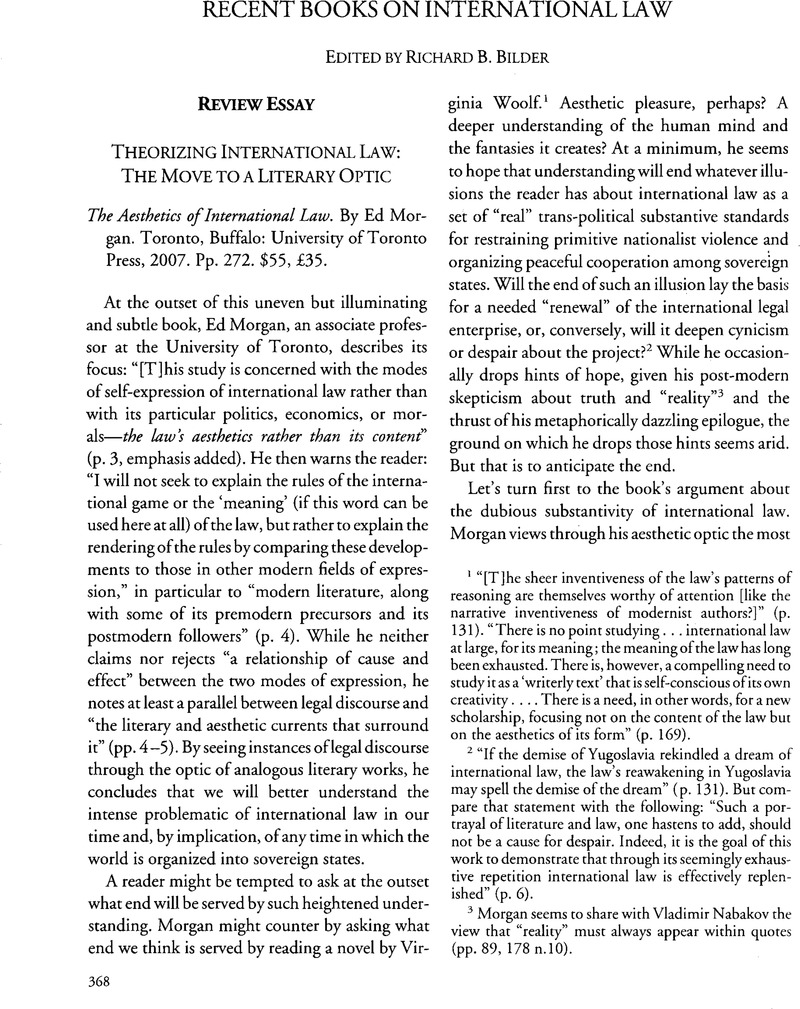No CrossRef data available.
Published online by Cambridge University Press: 27 February 2017

1 “[T]he sheer inventiveness of the law’s patterns of reasoning are themselves worthy of attention [like the narrative inventiveness of modernist authors?]” (p. 131). “There is no point studying . . . international law at large, for its meaning; the meaning of the law has long been exhausted. There is, however, a compelling need to study it as a ‘writerly text’ that is self-conscious of its own creativity.... There is a need, in other words, for a new scholarship, focusing not on the content of the law but on the aesthetics of its form” (p. 169).
2 “If the demise of Yugoslavia rekindled a dream of international law, the law’s reawakening in Yugoslavia may spell the demise of the dream” (p. 131). But compare that statement with the following: “Such a portrayal of literature and law, one hastens to add, should not be a cause for despair. Indeed, it is the goal of this work to demonstrate that through its seemingly exhaustive repetition international law is effectively replenished” (p. 6).
3 Morgan seems to share with Vladimir Nabakov the view that “reality” must always appear within quotes (pp.89, 178n.10).
4 “International legality often seems to suffer not so much from normative poverty but from an embarrassment of normative riches. It has constructed itself to that it is open to multiple substantive positions on a given legal issue or dispute . . .” (p. 128). “[T]he European Commission and the Criminal Tribunal for the former Yugoslavia demonstrate . . . the international law past can be rewritten in accordance with a range of possibilities” (p. 130).
5 See discussion supra at 369–70.
6 “[M]uch of what [Secretary of State Condoleezza] Rice takes aim at is the Iraqi government’s legalistic defence. In this view, while today’s cooperative players in the community of nations ‘lead inspectors to weapons and production sites, answer questions before they are asked, state publicly and often the intention to disarm,’ Iraq, by contrast, exhibits a classical sovereigntist attitude by insisting on its right to remain silent. In other words, the United States—the very personification of the argument for unilateral self-help towards disarming and deposing Saddam—argued strenuously for a cooperative, multilateralist approach toward disclosure and non-proliferation. At the same time, Iraq’s defenders—the very embodiment of internationalism and the dominance of multilateral institutions over the individual state—argued strenuously for the right of the state to insist on its privacy and the non-interference of the broader community of nations” (p. 157).
7 “It is commonplace to note that article 2(4) of the UN Charter mandates pacifism as the governing international ethic, all else being equal” (p. 158).